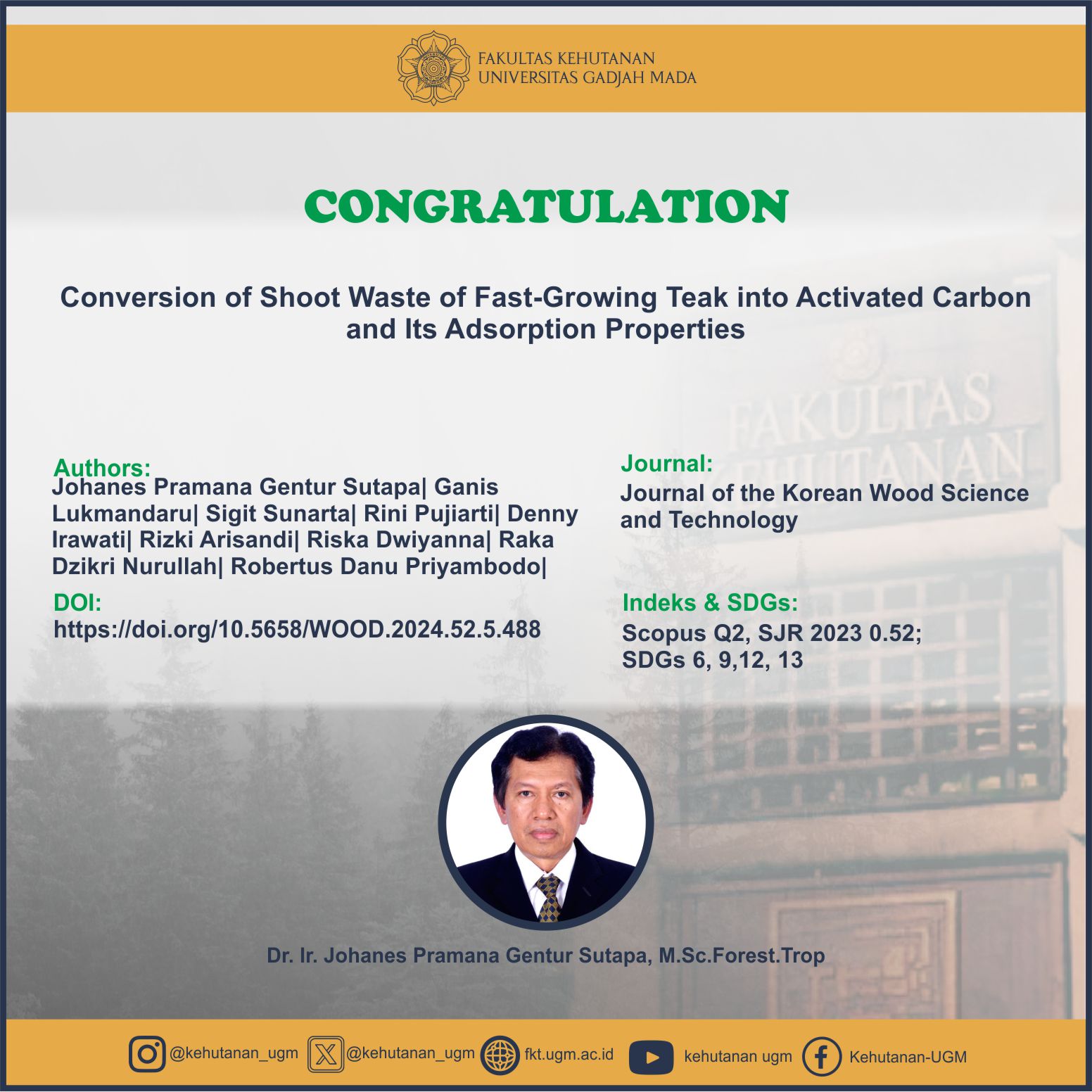
Abstract
Shoot waste refers to the parts of trees that are not yet optimally utilized. In this study, we aimed to utilize shoot waste of fast-growing teak (FGT) extracted from the community forest in Wonosari, Gunungkidul, Yogyakarta Special Region, Indonesia by converting it into charcoal, followed by further conversion into activated carbon. This study was conducted with two treatment factors of the activation process, including thermal treatment (750°C, 850°C, and 950°C) and heating period (30, 60, and 90 min), to determine the best condition for the activation process. Our results indicated a significantly effect of the interaction between thermal treatment and heating period on the moisture content, volatile matter content, ash content, fixed carbon content, and adsorption properties of the produced activated carbon. The highest iodine adsorption capacity of activated carbon is 1,102.57 mg/g, which was produced by thermal treatment at 750°C and heating period of 30 min. This result fulfilled the Indonesian National Standard (SNI 06-3730-1995 quality standard). Furthermore, the quality parameters of the produced activated carbon include: moisture content of 6.13%; volatile matter content of 17.27%; ash content 5.24%; fixed carbon content of 77.49%; benzene removal efficiency of 8.43%; and methylene blue adsorption capacity of 69.66 mg/g. Based on this study, we concluded that shoot waste of FGT could be classified as a prospective material for developing activated carbon for industrial application.
SDGs:
SDG 6:Clean Water and Sanitation
SDG 9:Industry, Innovation, and Infrastructure
SDG 13: Climate Action
SDG 12: Responsible Consumption and Production
Link Dokumen:
Download
